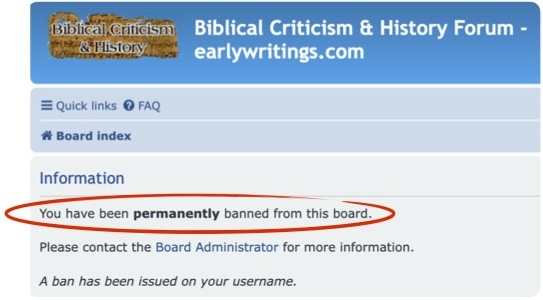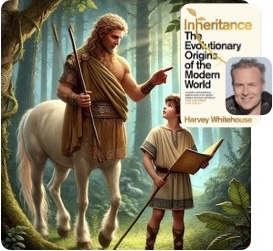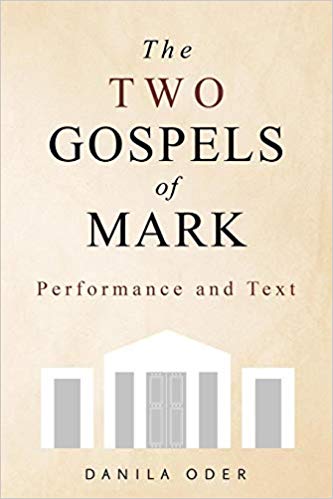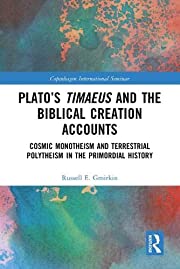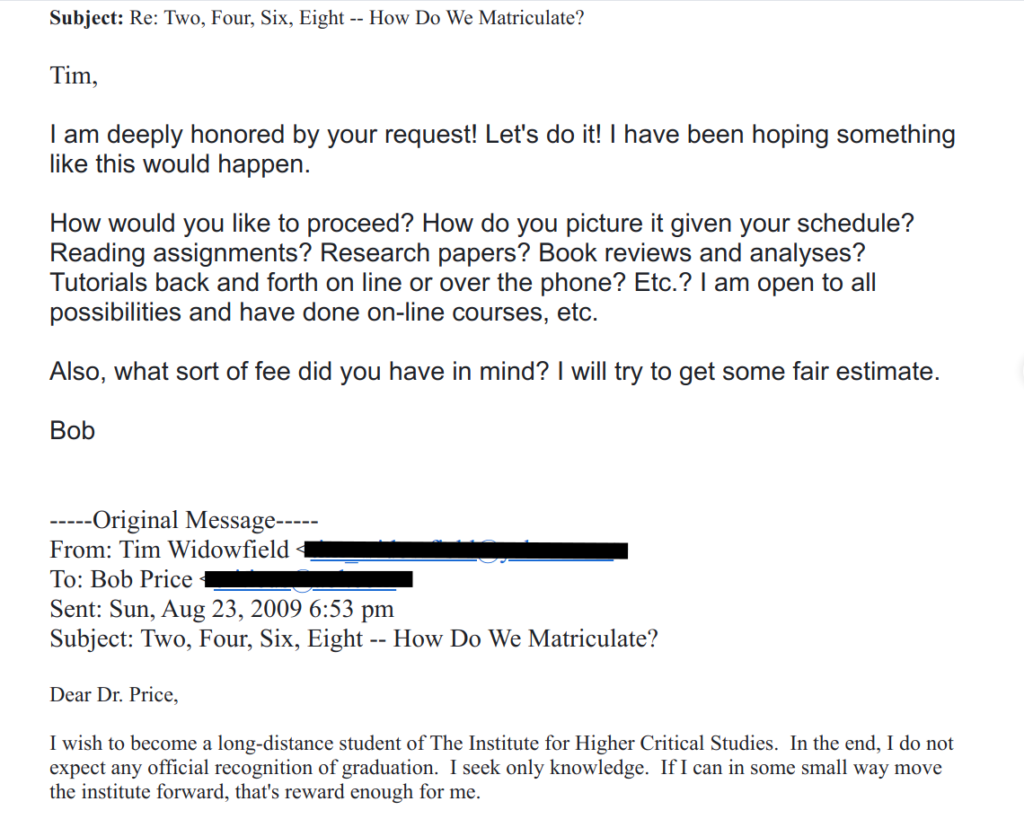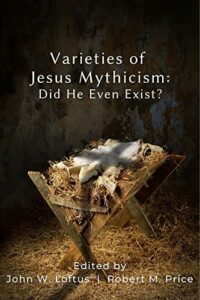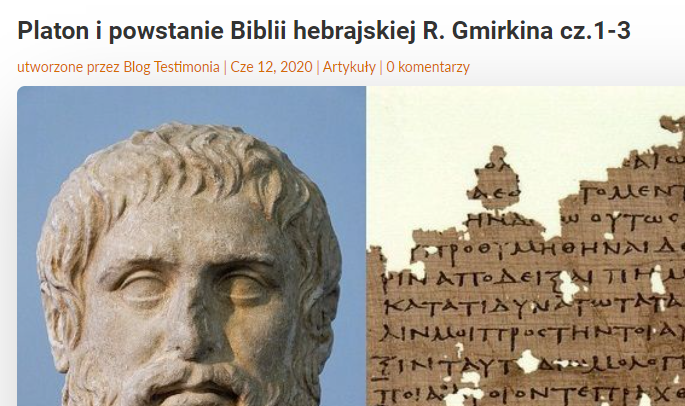I returned to the forum to follow up a question I had with a scholar on the earlywritings forum and wanted to reply to his answer but discovered when I tried to log in that I am met with a message:
It seems my attempts to engage critically with the moderator of the forum, Peter Kirby, was simply too much for him. Or was it my attempts to protest the trolling insults leveled against others — including ad hominem by Peter Kirby himself — that he interpreted as personal criticisms of his moderation practices? I’d like to point you to my protests and how they were responded to but the moderator has placed them in a section that only members can access.
The irony is that other members would sometimes speak up for me and compliment me on my refusal to engage in the personal attacks and other trolling that is so rife there.
The further irony is that he has publicly praised the forum contributions of the two worst trolling offenders of all. Not that he praised them for their trolling, of course. But trolls are trolls, I think, because they have little of substance to contribute and are at a loss in serious debate. Perhaps some responses that I would see as fatuous disunderstanding of the issues were interpreted as weighty contributions by the moderator — so I wondered privately.
I did point out that Peter Kirby has regularly been critiqued by significant others for raising critiques that are grounded in misunderstanding or failure to read and synthesize the details of works he is attempting to engage with. I did so because of a post of his in which he personally attacked the characters of some others while simultaneously expressing longing for the days of a certain scholar who did not think of his contributions as highly as he seemed to remember. Maybe that was the last straw. Or was it because of my rejoinder to him when he insisted that he had said nothing wrong — indicating that his personal insults are justified? (Ah yes — when he insisted he had said nothing wrong I do recall now that I “let fly” and reminded him of his record of insult and character denigration of others under the guise of “being helpful”. — I guess then I did indeed attack the moderator for his own misdemeanours.) [[NOTE to Neil: Do Not Tick Off a Moderator of a forum by confronting him with his faults if you would like to post from time to time!]]
Or was it my attempt to try to explain that the approach of many biblical scholars was not in accord with the methods of historians in other fields of inquiry?
Whatever the reason he did not seem to think it appropriate to inform me of any reason. As a rule I was always trying to be careful to stay on topic and avoid any insult or denigration of others. Unless some ham-fisted attempts at humour were misunderstood, but I’d normally have a chance to explain if I saw that happening. And standing up for others against insults was certainly not a personal attack on the moderator: it was pleading the moderator, not attacking him.
But Peter has for some reason long been reading my comments and responses with personal hostility, seeing in them personal attacks where there are none, and gratuitously judging my character and mentality in the most outlandish ways. I never could understand why. When I asked at one point he simply indicated that I must be blind not to see how abusive or insulting I was being. I had long thought I got along well with all members except for two well-known trolls and the moderator himself. Sometimes others complimented me in public or in personal messages at my forbearance.
I left the forum as a regular contributor a few weeks back simply because I could no longer handle the personal abuse I received from two trolls and the moderator himself. The pressure to leave had been mounting after Peter set up a trolling and ad hominem free zone for certain “Academic” discussions — only for me to find myself being targeted by trolling responses and very, very lengthy ad hominem posts by Peter himself in which he presented lengthy “arguments” (pop-psychoanalysis) about my psychological disposition and telling me I should never fault an argument for being circular! (seriously)
Well, I guess I am not welcome on a forum in which the moderator breaks his own rules prohibiting ad hominem posts in his “Academic” forum and in which he praises the contributions of two of the most shallow, dogmatic, anti-intellectual and ignorant trolls I have ever encountered. I am certainly not weeping.

